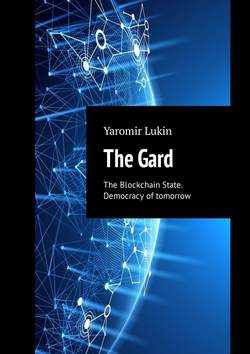Читать книгу The Gard. The Blockchain State. Democracy of tomorrow - Яромир Лукин - Страница 3
So what is the Blockchain State?
ОглавлениеThroughout history, the world was divided into territories with the peoples living on it. So, it was for millennia. Groups of settlements were united in the countries, developed culture and values, and perfected the state apparatus. Wars whose purpose were natural and human resources were fought for territories.
Even now, in the 21st century, territorial issues remain relevant. Natural resources are also the main subject of discussion and wars, reminding us of the archaic nature of society and the management system. And slave labor has remained, but it has found a new form with more comfortable conditions. It would seem that in the era of the development of information technologies, the world had to change, and the slogan “who is stronger, that’s right” would sink into oblivion. However, this did not happen. The world is also ruled by weapons and money: some states are fighting for highly skilled and/or cheap labor; others are declaring terrorists the countries where there is oil.
Only the non-admission of territorial disputes and the complete rejection of “modern slavery” with its compulsory taxation of individuals and the creation of forced conditions for migration to more developed countries can reach the next level of civilization.
The Gard project makes it possible to build a different society with other principles and fundamentals.
The main differences of the Blockchain State, as a form of government and interaction with society, are the absence of territory and the decentralization of power. Gard is a platform based on the blockchain technology, branched into many sectors, with its own smart contracts, providing various functions of the State.
Foundations of the Gard Blockchain State
1. Decentralization of Power
– Representatives of the three branches of government (legislative, executive, and judicial) are the citizens themselves; they also control, appoint, and remove from office.
– Legislative drafts are proposed and accepted by citizens (directly or through representatives). They can also be canceled.
– Openness and controllability of the budget by the population.
2. Market economy (compulsory competition in all sectors of the platform).
3. Renunciation of direct taxation of citizens on their income and property. But voluntary charity and payments to the population with a budget surplus are permitted.
4. Renunciation of the territory as an outdated sign of civilization.
5. The right to privacy and the confidentiality of personal data.
6. Freedom of choice, speech, and religion.
